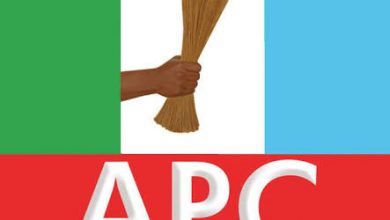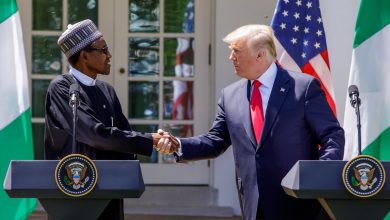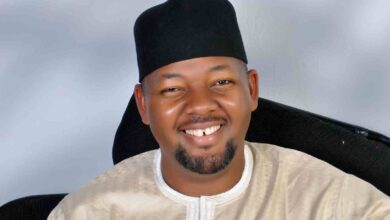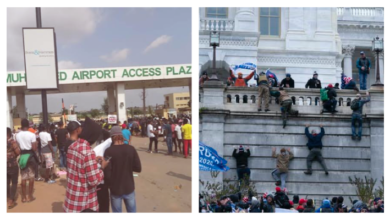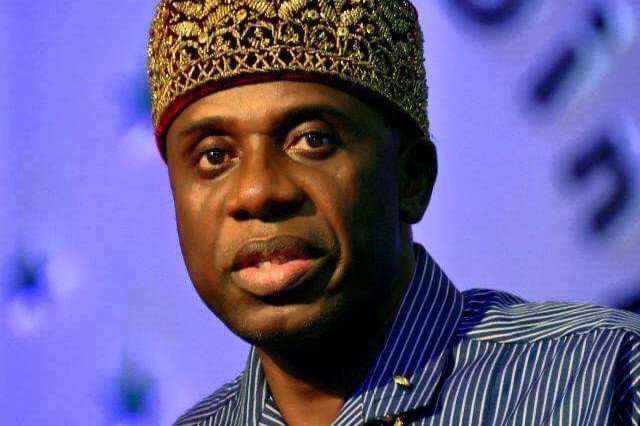
By Salisu Na’inna Dambatta
The recent announcement by the Minister of Transportation, Chibuike Rotimi Amaechi that the Nigerian University of Railway Transportation in Daura, Katsina State, is likely to be completed by September 2021, is a source of real joy for millions of Nigerians.
The prospects of completing the construction of the University and its eventual take-off next year represents a major step in the country’s quest to strengthen our national capacity for massive movements of goods and passengers at affordable rates.
The specialised University in Daura will be the main centre for the training of the high-level human capital needed to make railway transportation safe, reliable and efficient in Africa’s largest economy and home to almost a quarter of the continent’s population.
The relevance of the Nigerian University of Railway Transportation is further accentuated by the fact that the manpower it will raise will be playing a major role in the process of expanding and modernising the country’s archaic railway network on a sustainable basis.
The University costing around US$50 million is a Corporate Social Responsibility project by a Chinese Construction Company to Nigeria. The Company is giving back to a country that engaged it for the expansion of its railway network to link our ports, all state capitals and major towns.
The renewal of the country’s railway system includes the construction of a factory for assembling rolling stock at Kajola in Ogun state. Work on the factory started in November 2019.
Minister of Transportation Chibuike Rotimi Amaechi said the plant would be assembling locomotives, coaches, wagons and diesel multiple-units for domestic and export to other countries in West Africa.
Activities in the plant will as well cover production processes including welding, assembling , painting and testing. It has a capacity of 500 vehicles per year.
While laying the foundation for the factory on November 9, 2019, the Vice President, Professor Yomi Osinbajo said, “By linking our ports to rail lines and building the rolling stock locally, import and export business within and outside of Africa’s largest market will be completely transformed.”
It is noteworthy that the country is making similar progress in developing sufficient high-quality human capital to support water and air transportation.
In working to achieve that, Federal Ministry of Transportation and the Nigerian Maritime Administration and Safety Agency (NIMASA), proposed the establishment of the Nigeria Maritime University, Okerenkoko, Delta State.
The University’s website said it “was established in response to the chronic shortage of professional human capital and global competitive technical know-how in the maritime industry and economy.”
The University took off 24 months ago with three Faculties, 13 programmes and departments. It also has a school for Basic studies. The core maritime programmes in the Faculty of Marine Transport are Marine Economics and Finance, Nautical Science, Ports Management and, Transport & Logistics.
The training of critical human capital for the air transportation industry in Nigeria, including different categories of pilots, technicians and even cabin crew, is the responsibility of the Nigerian College for Aviation Technology (NCAT), Zaria, Kaduna State. The College was established in 1964 and currently runs training in 15 different aviation skills.
The college has a fleet of 50 trainer planes, including 20 brand new Diamond trainer aircraft that were bought for US $20 million and delivered in 2017.
The Nigerian Institute of Transport Technology, Zaria, is another tertiary centre for the training of experts in transportation-related roles.
The Act establishing the Institute mandated it to “provide management training for personnel employed in all modes of transport. NITT serves as a Transport Intelligence Centre for monitoring transport and logistics systems, and provide equipment and facilities for the encouragement, promotion and conduct of applied research in all modes of transport.”
Infrastructure for road transport is equally getting attention as the Federal Government is reconstructing the main trunk and secondary roads. New bridges to shorten road travel distances and make road trips safer and cheaper.
Indeed, there is no doubt that given the vital numerous projects it is implementing since coming into office in 2015 in upgrading the transportation sector, the Muhammadu Buhari-led Federal Government will have an enviable place when the history of transforming the sector in Nigeria is written.


